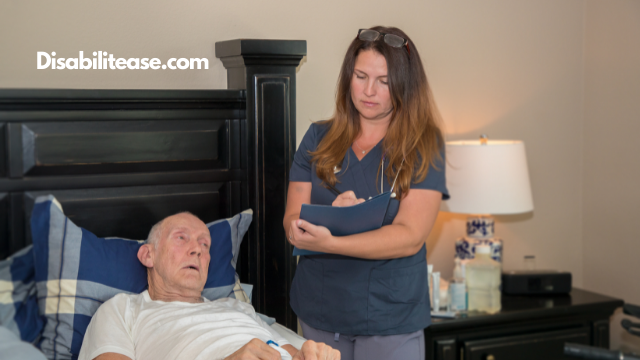Both Parkinson’s and Huntington’s disease are neurodegenerative conditions that affect one’s cognitive and motor abilities. Due to the loss of essential nerve cells, both diseases cause involuntary movements such as tremors, sudden shaking, and jerks.

Which Is Worse: Parkinson’s and Huntington’s? While Parkinson’s progresses to the next stage more rapidly, its accompanying symptoms do not get noticeably worse.
Here is a related article that might interest you on What Causes Parkinson’s Disease Tremors?
The last stage of Huntington’s comes with much more life-threatening and disabling symptoms than the last stage of Parkinson’s. Moreover, the interaction of mental and physical disabilities can make Huntington’s disease more debilitating.
Table of Contents
Which Is Worse Parkinson’s And Huntington’s?
Similarities
Being neurodegenerative, the two have multiple similarities in their symptoms, early signs, progress, and treatments. Some of these similarities are explained below.
Causes
Both conditions are caused when nerve cells indirectly responsible for maintaining muscle coordination, movement control, and cognitive abilities begin to deteriorate and die. The loss in return makes a person more susceptible to involuntary movements such as tremors, shaking, and compulsive movements.
Symptoms
Both conditions make independent living difficult, especially during the advanced stages. This is mainly due to the effect it has on one’s mental and physical health. Individuals diagnosed with either of the two conditions suffer from balance abnormalities, walking difficulties, and reduced movement speed.
Both groups also find it hard to make use of working memory to make quick decisions. Another common symptom is difficulty with speech. The conditions cause weaker working memory and problem-solving skills. This makes communication noticeably slower and rigid.
Treatments
While there is no cure or permanent treatment for both conditions, similar approaches are used to improve symptoms. Both conditions require occupational and physical therapy to make everyday tasks easier. Depending on the severity, speech therapy may also be needed to maintain one’s independence and prevent further damage to speech.
Differences
While relatively similar on the surface, the two conditions have their own unique implications that impact affected individuals differently. These are explained in more detail below.
Root Cause
While both are caused due to nerve cell depletion, the root causes of each disease can be very different. Parkinson’s is still considered an idiopathic (with no known cause) disease, whereas Huntington’s is related to a direct defect in the HTT gene within chromosome 4. Parkinson’s is a much more complicated disease and possibly related to multiple influencing factors, including genetics, environment, and traumatic brain injury.
Diagnosis
Due to the different root causes, each condition also requires a different diagnosis. Huntington’s has a relatively straightforward testing process where individuals at risk can go through what is typically called a “direct genetic test”. The test uses the DNA taken from the patient’s blood test and checks it for the presence of any defect. It is currently the most valid and effective diagnosis available for Huntington’s Disease.

Compared to this, Diagnosing a patient with Parkinson’s Disease is much more complicated due to no definitive known root cause. The diagnosis usually includes a lengthy assessment with different medications. In most cases, the doctor will prescribe a drug called levodopa which is designed to help specifically with Parkinson’s Disease.
A valid diagnosis can be made if a patient’s symptoms improve after the particular medication.
Early Signs
The early signs of Parkinson’s include slow movement and loss of agility in both thinking and physical activities. The signs also appear in later stages of life, typically after the age of 50. This can make early detection a challenge as the milder symptoms are often mistaken for signs of aging.
On the other hand, early signs of Huntington’s disease lean more heavily towards the mental and psychological sides. In the earliest stages, it affects the concentration, thinking, and reasoning skills. Affected individuals also go through changes in their overall mental health, including worsening outlook on life, depression, and mood swings. The signs begin to appear between the ages of 30 and 50.
Also, you have to check out my post on Detailed Guide To Parkinson’s Disease
When it comes to life-changing diseases such as Parkinson’s and Huntington’s, no one disease is more forgiving than the other. Affected individuals face unique challenges that can never be compared and rated for the pain they cause. But a comparison can be made in terms of manageability of symptoms, life expectancy, independence, and effect on social and professional life.
Symptom Management
While both diseases are debilitating, one is more manageable than the other with medication. The early and middle stages of Parkinson’s are relatively easier to handle with medication and minimal physical therapy. However, Huntington can become challenging even in the earliest stages and harder to control.
Affected individuals usually need more extensive medication. While most symptoms of Parkinson’s are tamed with just one drug called levodopa, patients with Huntington’s require different medications to curb the diverse symptoms. They may be prescribed drugs like Xenazine to control involuntary movement, antidepressants to prevent compulsive behavior, and antipsychotic drugs to suppress increased irritability and agitation.
Moreover, medication may need to be changed as the disease progresses.
Life Expectancy
Parkinson’s is not a life-threatening disease and early death from complications is also rare. Most affected individuals go on to live a life as long as the average healthy person.
Compared to this, Huntington’s is a life-threatening disease, and most patients die within 15-30 years after diagnosis. Average Life-expectancy with Huntington is around 63 years. However, it is important to note that the condition is not fatal in itself. Most early deaths are caused due to complications of the disease, such as developing heart disease or pneumonia.
Modern medication has minimized the risk of developing complications and made patients less vulnerable to catching diseases that can be life-threatening.
Independence
Those with Parkinson’s Disease usually require external support to carry out everyday tasks such as walking, cleaning, and cooking food in the 4th and 5th stages.
These stages can take 11 to 12 years to develop after the initial diagnosis. Moreover, the disease more commonly impacts a person’s physical independence rather than mental abilities. For this reason, affected individuals are still able to maintain some level of cognitive, reasoning, and speaking abilities.
In comparison, Huntington’s Disease progresses more slowly, with the first stage typically lasting for 8 years. Affected individuals can therefore remain independent and carry out their social and professional life for a longer period.
Also, make sure to check out my post on What Is Parkinson’s Disease Life Expectancy?
The intermediate stage also lasts for up to 13 years, where emotional and behavioral changes become more noticeable. Changes in mobility and involuntary movement are also minimal at this stage and don’t cause any limitations regarding what a person can and cannot do.
However, the pace of progress and the severity of each stage are two different things. While Parkinson’s progresses to the next stage more rapidly, its accompanying symptoms do not get noticeably worse. The last stage of Huntington’s comes with much more life-threatening and disabling symptoms than the last stage of Parkinson’s.
Moreover, the interaction of mental and physical disabilities can make Huntington’s disease more debilitating.

Hi, my name is Eddie, I am a professional trainer specializing in the elderly population and I’m also a website designer. I love training in the gym, going to the beach, traveling, and having good food.
I combined my love for sport and website designing to make “DisabilitEase” whose purpose is to help elderly and disabled people live a more full and active life, have more fun, and enjoy their unique journey despite any disability.



